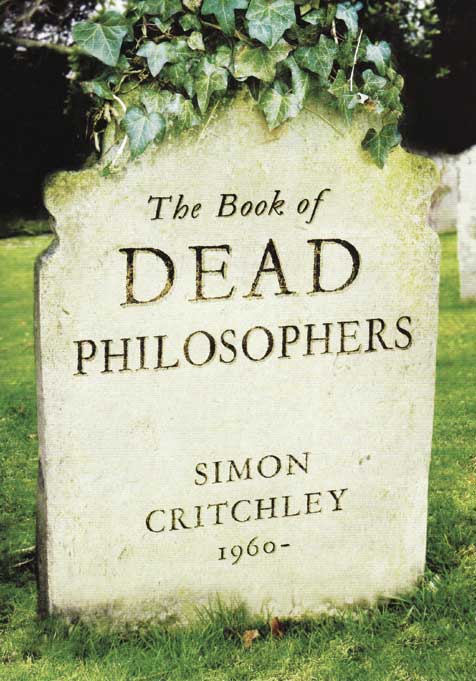Death awaits us all and yet few philosophers have devoted more than a fraction of their work to it - even those philosophers like Montaigne who hold, with the ancients, that “to philosophise is to learn how to die”. Of these few, almost none in the last hundred years is English-speaking, in part because until very recently Anglo-Saxon philosophers have striven, almost without exception, for systematic, dispassionate and, if possible, timeless descriptions of our ordinary practices – a bent that has left little room for much of life, let alone for death.
 If an English-speaking philosopher is going to write a book on the subject he had therefore better be very familiar with the so-called “Continental” tradition of philosophy – with, for example, thinkers like Heidegger for whom awareness of death as a final horizon for all our experiences and practices is essential to an authentic living of life. Simon Critchley is an ideal author for a book of this sort as he is a distinguished philosopher who is deeply interested in such Continental thinkers as Levinas, Blanchot, Derrida and of course Heidegger.
If an English-speaking philosopher is going to write a book on the subject he had therefore better be very familiar with the so-called “Continental” tradition of philosophy – with, for example, thinkers like Heidegger for whom awareness of death as a final horizon for all our experiences and practices is essential to an authentic living of life. Simon Critchley is an ideal author for a book of this sort as he is a distinguished philosopher who is deeply interested in such Continental thinkers as Levinas, Blanchot, Derrida and of course Heidegger.
Critchley’s sketches of the lives and deaths of philosophers since antiquity – not only Western but also Chinese and Islamic – are brilliant, entertaining, informative, and marked throughout by lightness and humour. If there is a disappointment in this book, it is that we don’t hear more from his philosophers on dying – agreed, I think, to be at least as problematic as death itself – and, more generally, that we learn little about how their actual deaths were informed by their philosophies and even less about how their thoughts on death looped back on to their lives.
For a scholar of Critchley’s meticulousness one suspects that these omissions aren’t due to skimping on the research. Rather, it seems that few of his cast of thinkers actually died philosophically pregnant deaths. Yet there are some, like the Stoic Seneca, who did, and it would have been interesting to have a more vivid account of his dignified suicide, preceded, according to Tacitus, by eloquent words on how death is redeemed by the example of a virtuous life.
The reality, though, is that most philosophers in the Western tradition, heavily dominated as it is by Plato and his valuation of the eternal and absolute – or by reactions to, and inversions of, his thought – are in the business of squeezing some enduring value out of life, with death and meditations on it playing little more than a supporting role. Even thinkers like Nietzsche and Camus, who range themselves against all ideas of timeless values or truths, seem nonetheless preoccupied with achieving lives whose power or authenticity will have some claim to immortality, if only the immortality of memory. This makes writing a book on philosophical deaths hard. Few though, are better equipped for the task than Simon Critchley and his book is a tremendous addition to an all too sparse literature.
The Book of Dead Philosophers is published by Granta

